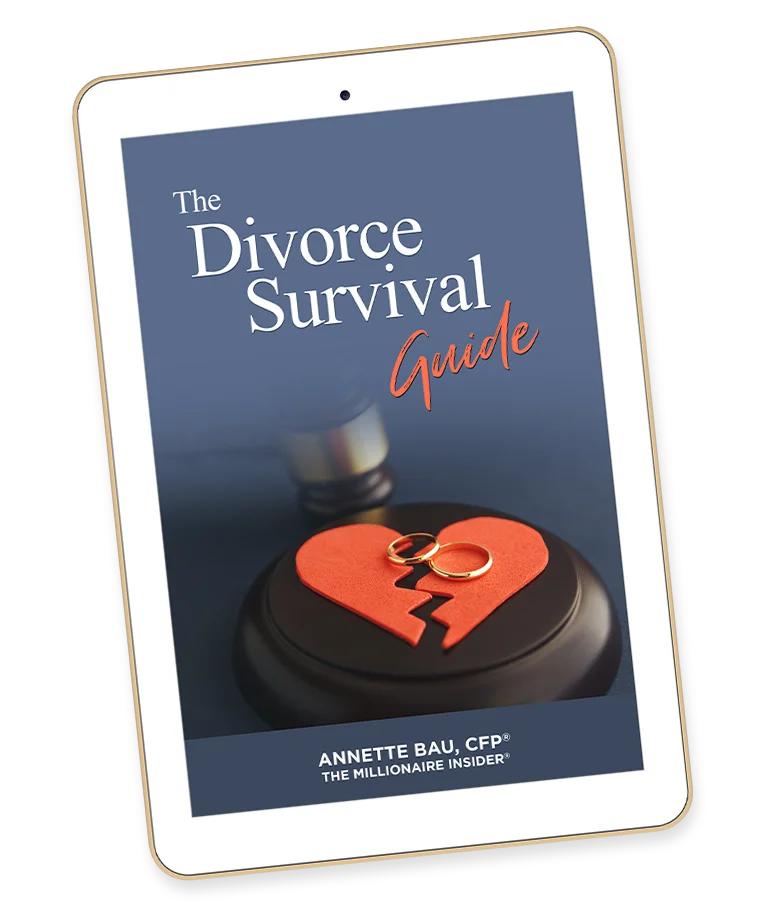Updated April 8th, 2025
Many people say that the only thing worse than being married to a narcissist is trying to divorce one. If you’ve been in a relationship with a narcissist, you’ve likely faced numerous challenges. However, the difficulties of marriage pale in comparison to the emotional, psychological, and legal battles of divorce.
Narcissistic tendencies that were problematic in the marriage frequently escalate during divorce proceedings. While any divorce can be difficult, separating from a narcissist introduces an entirely new level of complexity.
It’s common for divorcing individuals to describe their ex as difficult, self-centered, or unreasonable. However, a true narcissist exhibits consistent patterns of manipulation, emotional control, and a relentless need for dominance. Understanding these behaviors and preparing accordingly can help protect your peace, self-esteem, and future.
Disclosure
MillionaireSeries.com® copyright all materials and intellectual property.com®.
This information is for educational purposes only. It is not intended to replace any advisor or specialist or provide investment, financial, tax, retirement, planning, or healthcare advice.
By reading this, you agree to hold MillionaireSeries.com® and its affiliates harmless for results achieved or not achieved.
Characteristics of a Narcissist
The Mayo Clinic defines narcissism:
“Narcissistic personality disorder — one of several types of personality disorders — is a mental condition in which people have an inflated sense of their importance, a deep need for excessive attention and admiration, troubled relationships, and a lack of empathy for others. But behind this mask of extreme confidence lies a fragile self-esteem vulnerable to the slightest criticism.
A narcissistic personality disorder causes problems in many areas of life, such as relationships, work, school, or financial affairs. People with a narcissistic personality disorder may be generally unhappy and disappointed when they’re not given the special favors or admiration they believe they deserve. They may find their relationships unfulfilling, and others may not enjoy being around them.”
Recognizing the Narcissist in Your Life
Many people can quickly identify public figures—celebrities or politicians—who exhibit narcissistic traits. However, recognizing these patterns in someone you once loved and built a life with can be more complicated.
After years of being charmed and manipulated, it often takes time and healing to see the red flags fully. Keep in mind that narcissists need to win because their sense of worth depends on it. Behind their grandiosity is a fragile self-esteem and an unshakable need for validation.
What It’s Like to Divorce a Narcissist
Although every divorce is unique, certain behaviors commonly emerge when a narcissist feels emotionally threatened during a separation or divorce. Expect the following:
- Superiority Complex: They believe they are more intelligent than you, your attorney, therapist, and even the judge. They often dismiss laws, ignore agreements, and violate court orders, convinced they can charm their way out of any situation.
- Control Tactics: A narcissist will try to prevent you from seeking legal counsel or outside support. They don’t want you to receive information they can’t control, including the truth.
- Blame-shifting: Narcissists rarely take responsibility for their actions. If they engaged in adultery, substance abuse, or even domestic violence, they may twist the narrative to claim that you drove them to it.
- Undermining You: They may attack your credibility, claiming you’re an unfit parent or undeserving of financial assets. They do this to maintain control and weaken your position.
- Delaying and Creating Chaos: If they feel they aren’t “winning,” they may drag out the divorce, ignore court orders, make false claims, or create conflict to regain power.
Tips For Divorcing a Narcissist

1. Build Your Support Team Early
Narcissists believe they can manipulate everyone, including attorneys and judges. If charm doesn’t work, they will lie, gaslight, or even falsify information to gain the upper hand.
This is why assembling a strong support team is crucial. Seek professionals who can guide you through the process, including:
- A Certified Financial Planner (CFP®) or Certified Divorce Financial Analyst (CDFA®) to handle asset and debt division.
- A divorce attorney experienced in high-conflict cases to protect your legal rights.
- A therapist or divorce coach to help you stay focused and emotionally resilient.
If you or a friend would like support, go here:
2. Prepare for a High-Conflict Divorce
There are several divorce models to consider:
- Mediation: This works only if you have a consulting attorney or advisor to verify agreements. Be cautious. Narcissists may prefer mediation because they believe they can manipulate the mediator.
- Collaborative Divorce: This approach involves attorneys, financial specialists, and communication coaches. The structured team environment can help keep a narcissist accountable.
- Traditional Litigation: This is often the most expensive and time-consuming route. However, court intervention may be necessary to enforce agreements in high-conflict divorcesout-of-court resolution model.
3. Document EVERYTHING

Keep a secure digital folder with all your spouse’s emails, texts, and messages. Narcissists frequently change their stories, lie, or break agreements. Having a paper trail protects you in court.
If you have in-person meetings:
- Bring a trusted witness or advisor.
- If permitted, record the conversation.
- Follow up with a written summary of the discussion via email.
4. Pick Your Battles and Stay Flexible
For narcissists, winning is everything. Before entering divorce negotiations, identify your top priorities and rank them. Let go of minor disputes and focus on the key issues—such as child custody and financial security.
Start with agreements on more minor matters (like personal property) to create momentum. If the narcissist tries to backtrack later, your attorney or mediator will uphold prior agreements.
5. Protect Your Children
Narcissists believe they are superior in all aspects—including parenting. They may attempt to control the divorce by using children as pawns. This may even occur in a gray divorce when the children are generally older.
Your priority is to shield your children from conflict. This means:
- Keeping communication with your ex civil and minimal.
- Avoiding negative comments about the other parent in front of your children.
- Working with a licensed Marriage and Family Therapist (MFT) to create a strong co-parenting plan.
Children will eventually recognize the truth about their narcissistic parent. You don’t need to expose it. Instead, focus on providing them with stability and emotional security.
This is also important for a gray divorce where the children are generally older.
6. Prioritize Your Self-Care
Before every flight, passengers are instructed to put on their oxygen masks before assisting others. The same rule applies to divorce.
Even if you are strong and capable, this process is emotionally draining. You may find yourself making high-stakes decisions at work but feeling paralyzed over what household items to keep. This is normal. Stress triggers a “fight, flight, or freeze” response in the body.
When you feel overwhelmed, pause and breathe. Lean on your support system—friends, family, pastor, and professional team. Trust yourself and remember that divorcing a narcissist may be more difficult than staying in the marriage, but with the right mindset and resources, you will get through it.
Conclusion – “Divorcing a Narcissist”

Understanding a narcissist’s tactics and preparing accordingly gives you an edge. These tips won’t apply to every situation but will help you navigate your divorce with greater confidence and control.
Most importantly, don’t go through this alone. Get professional support when needed—whether it’s legal, financial, or emotional. This isn’t just about winning a legal battle; it’s about protecting your future, children, and peace of mind.
If you or someone you know needs additional support, download our free Divorce Survival Guide:

